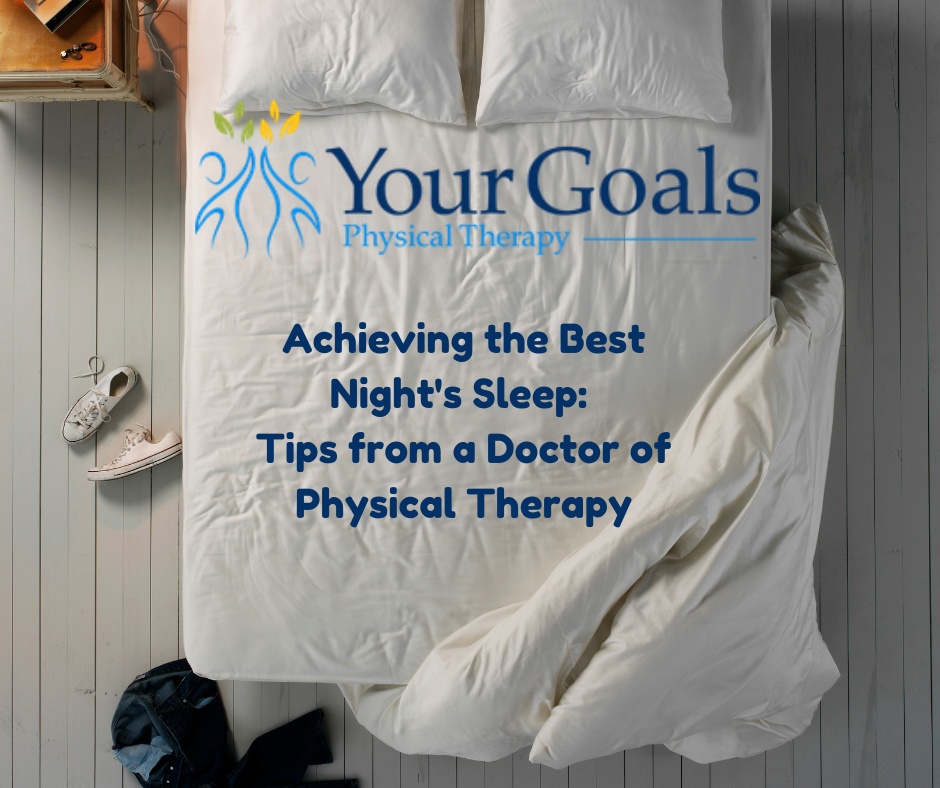
“Sleep is the golden chain that ties our bodies and minds together in harmony.” – Unknown
Caption: “Unlock the power of sleep! 💤💪”
Sleep is more than just a restful state; it’s a vital component of our overall well-being. Poor sleep can disrupt our physical health, mental clarity, and emotional balance. If you’re experiencing sleep issues, don’t hesitate to talk to a healthcare professional. They can help identify the underlying causes, provide guidance, and develop a personalized plan to improve your sleep quality. Prioritize your sleep, and unleash the potential for a healthier and happier life! 😴✨ #SleepWell #PrioritizeSleep #SleepMatters #TalkToYourPT
Introduction:
Welcome to Tone and Tighten! In this blog post, we will share five of Dr. Molly’s favorite tips a to help you achieve your best night’s sleep ever. Whether you are experiencing back or neck pain or simply looking for ways to enhance your sleep quality, these tips will provide valuable insights. So, let’s dive right in!
Find Your Ideal Sleep Position:
One of the most common questions asked is about the best sleep posture or position. The truth is, the best sleep position for you is the one that you find most comfortable and that holds your spine in a neutral position. Your spine has three major curves: the lower back, the middle back, and the neck. The ideal sleep position is one that supports these curves while keeping your spine straight. Avoid positions that rotate your spine, especially if you are a stomach sleeper.
Invest in Supportive Mattress and Pillow:
To achieve the correct sleeping posture, it is crucial to have the right amount of support from your mattress and pillow. Experts recommend replacing your mattress every 8 to 10 years. If you haven’t done so in the past decade, it might be time to consider getting a new mattress. Technology in mattresses has improved significantly, enhancing their ability to support your body. Additionally, choose a pillow that supports your neck and spine in a neutral position based on your sleep posture—whether you sleep on your back, stomach, or side.
Say No to Stomach Sleeping:
Sleeping on your stomach is anatomically the worst posture for a good night’s sleep. It makes it impossible to achieve a neutral spine position. Sleeping on your stomach causes your neck to rotate, leading to strain and discomfort. Additionally, it offers inadequate support to your stomach, resulting in excessive arching of your back. This can lead to waking up with a tight or achy back. Therefore, it is highly recommended to avoid sleeping on your stomach.
Sleeping on Your Side:
Sleeping on your side is a popular sleep position, and achieving a neutral spine position is crucial for proper support. Start by selecting a pillow that maintains your neck in a neutral position. A customizable pillow with shredded memory foam can be a great option. Place a flat pillow under your torso to support your lower back if needed. Lastly, use a pillow between your knees to relieve pressure on your hip and lower back, ensuring a comfortable and supported side-sleeping position.
Back Sleeping:
Sleeping on your back can be beneficial for maintaining a neutral spine position. Choose a pillow that supports your neck and keeps it aligned with your spine. You might want to consider a contoured or cervical pillow to provide optimal support. Additionally, placing a small pillow or rolled towel under your knees can help relieve pressure on your lower back.
Conclusion:
By implementing these tips from Dr. Molly, you can significantly improve your sleep quality and wake up feeling refreshed. Remember, finding the right sleep position, investing in a supportive mattress and pillow, and avoiding stomach sleeping are key factors in achieving a neutral spine position. Whether you prefer sleeping on your side or back, proper support and alignment are essential for a good night’s sleep. Sweet dreams!
MEDICAL DISCLAIMER:
All information on this website is intended for instruction and informational purposes only. The authors are not responsible for any harm or injury that may result. Significant injury risk is possible if you do not follow due diligence and seek suitable professional advice about your injury. No guarantees of specific results are expressly made or implied on this website.